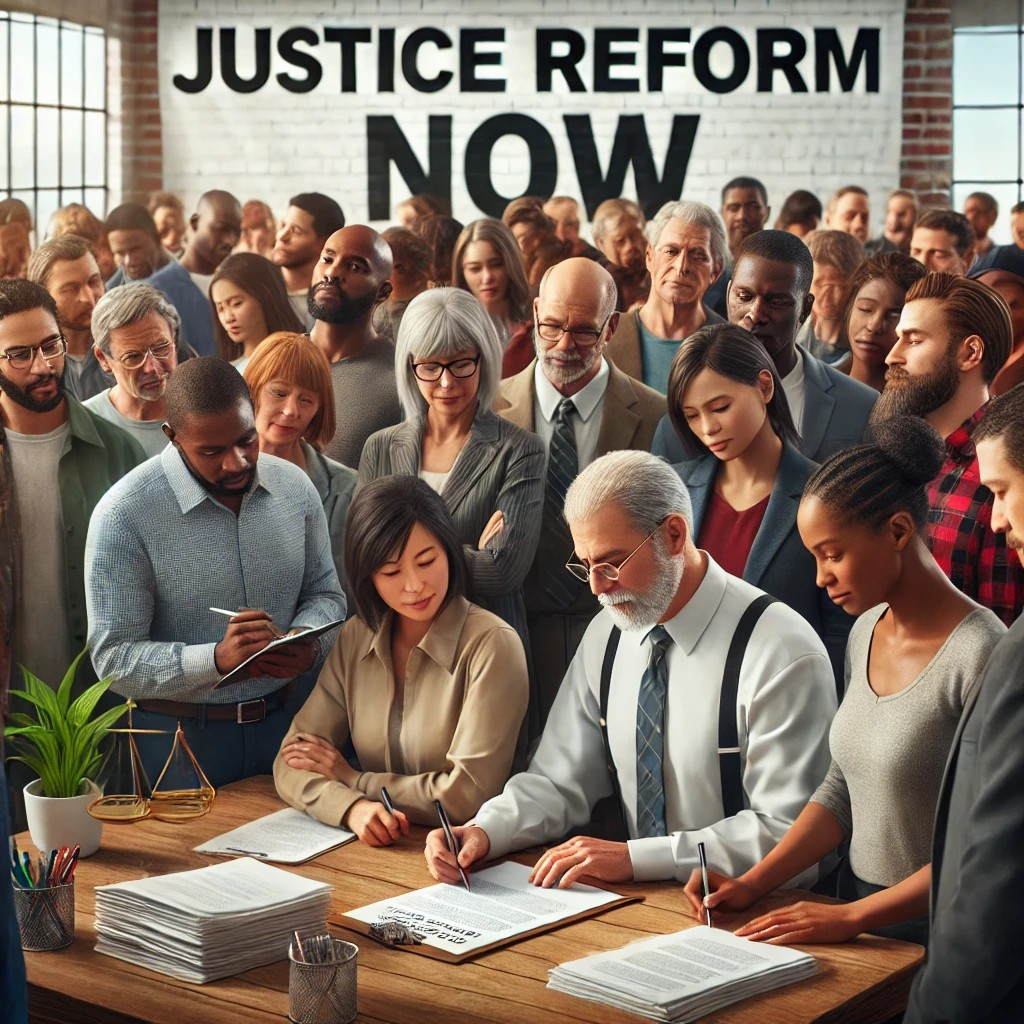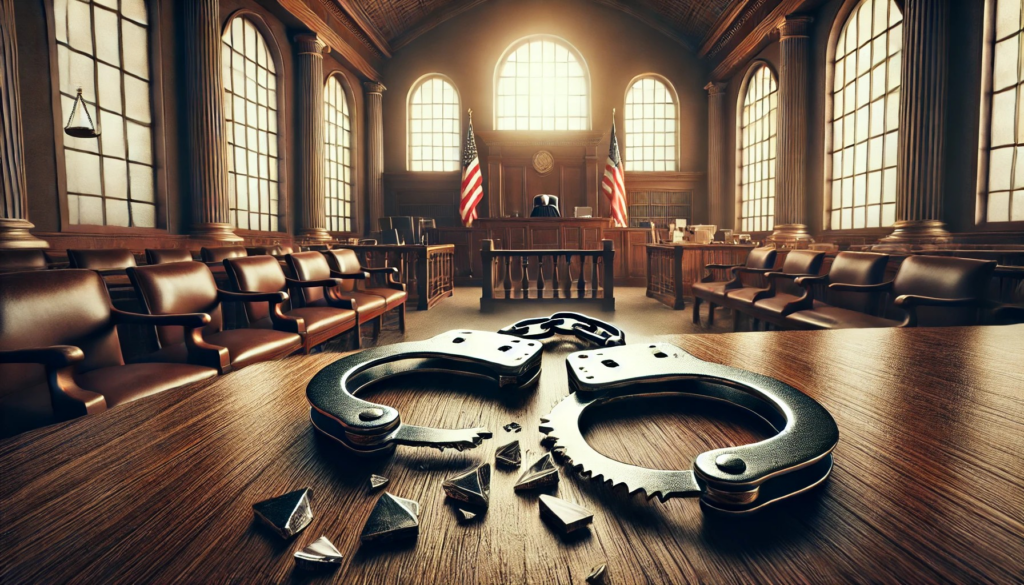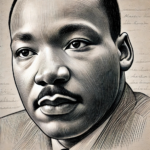Why Reform Matters
Every year, systemic issues in the justice system lead to wrongful convictions, unfair trials, and a loss of trust in law enforcement and courts. Reform is not just about addressing mistakes; it’s about creating a justice system that works for everyone—fairly, transparently, and equitably.
Key Areas for Reform
- Transparency and Accountability:
- Ensure law enforcement and prosecutors disclose all evidence, following the principles of Brady v. Maryland.
- Establish independent oversight committees to investigate misconduct.
- Protecting Defendants’ Rights:
- Guarantee timely access to all evidence for defense teams.
- Promote the right to competent legal representation, especially for underrepresented communities.
- Ending Police and Prosecutorial Misconduct:
- Mandate the use of body cameras and preserve all footage.
- Enforce strict penalties for misconduct, such as fabricating or withholding evidence.
- Fair Sentencing and Rehabilitation:
- Reform sentencing guidelines to reduce disparities.
- Emphasize rehabilitation over punitive measures to reduce recidivism.
- Support for Victims of Wrongful Conviction:
- Provide financial and emotional resources for exonerees to rebuild their lives.
- Offer comprehensive support to families affected by injustice.

How You Can Help
- Advocate for Policy Changes:
- Contact your local representatives to support laws promoting transparency, accountability, and fairness in the justice system.
- Educate Others:
- Share stories of wrongful convictions and the need for reform to raise awareness.
- Host community events, panels, or workshops.
- Support Organizations Leading Change:
- Volunteer, donate, or partner with groups like The Innocence Project, Equal Justice Initiative, or local advocacy organizations.
- Get Involved Locally:
- Join grassroots campaigns aimed at improving justice in your community.
- Attend city council or court meetings to hold local officials accountable.
The Path Forward
Justice reform is a long journey, but every step matters. By supporting policies, raising awareness, and demanding accountability, we can transform the system into one that serves and protects everyone equally.
Join the movement for justice reform today. Together, we can create a fairer, more just future for all.


